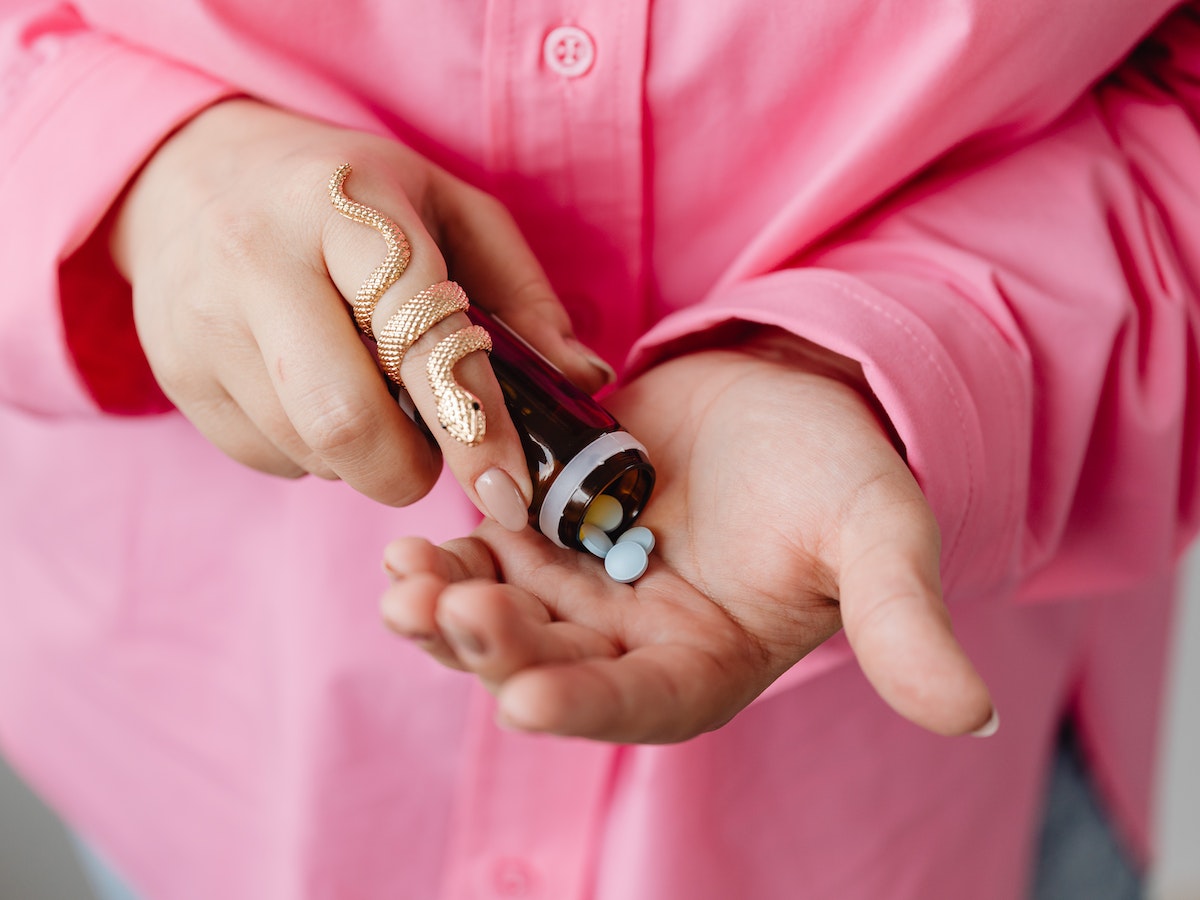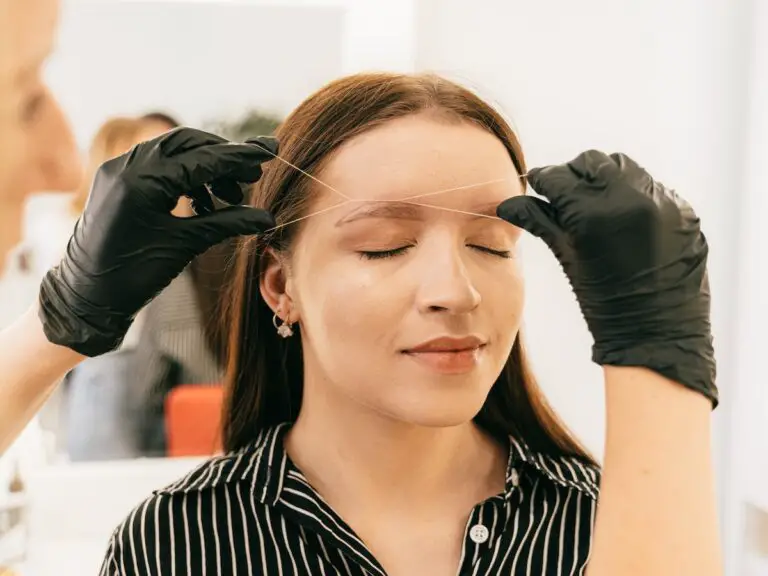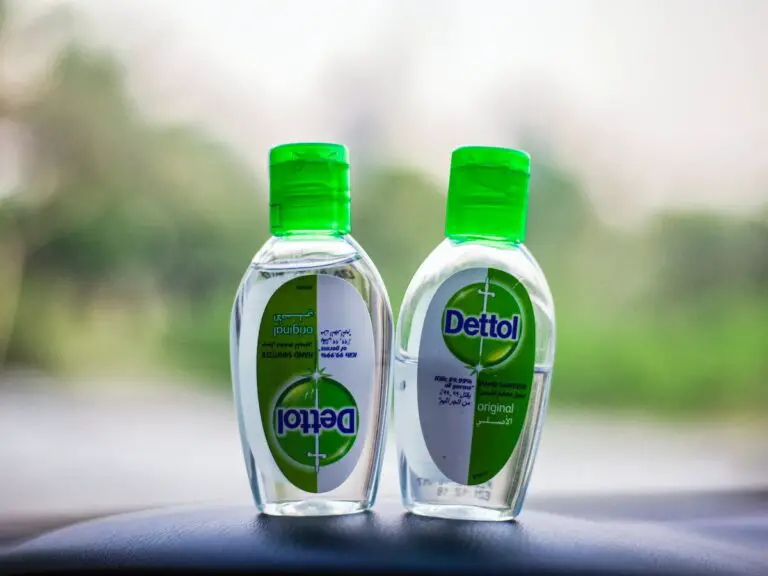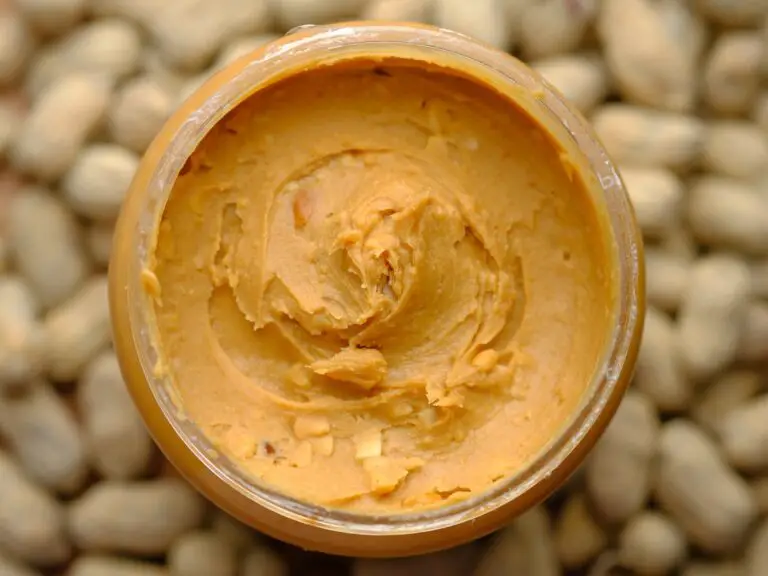Can Melatonin Cause Acne Breakouts? (Expert Advice)
You have pimples and wonder if melatonin could be to blame. You’re not alone. Melatonin is a hormone that controls when you sleep and wake up. It has recently come to people’s attention because it might affect skin health. Some people think that melatonin can worsen acne, but others say it can actually help acne.
In this piece, we’ll figure out what’s true and not about melatonin and how it affects acne. We will talk about the scientific evidence, the views of experts, and real-life experiences to give you a full picture of the topic. This article will tell you everything you need to know about melatonin, whether you want to use it to help you sleep or are just curious about how it affects your face.
Get ready to learn the truth about the link between melatonin and acne and how it might affect your skincare routine.
Table of Contents
What is Melatonin?
Melatonin is a hormone made in the brain by the pineal gland. It is a vital component of the sleep-wake cycle, also known as the circadian rhythm. Melatonin output is affected by how much light is around. Melatonin levels rise in the evening and peak at night. Melatonin sends the body a message that it’s time to sleep and makes you feel sleepy. Its synthetic form is also available in pharmacies and is prescribed by physicians for sleep disorders.
The Sleep-Wake Cycle and Melatonin Production
Melatonin is one of the most important parts of the sleep-wake cycle, which is a complicated process that includes many hormones and neurotransmitters. When it gets darker in the evening, the body makes more melatonin, which tells us it’s time to wind down and get ready for bed. Melatonin levels stay high all night, which helps people sleep deeply and restfully. In the morning and the sunrise, melatonin production goes down. This helps the body wake up and get ready for the day.
The Link Between Melatonin and Acne
Researchers and skin care experts disagree about whether or not there is a link between melatonin and acne. Some studies say that melatonin could make acne worse, while others say it could improve acne. The different results make it hard to come to a clear decision.
One idea says that acne flare-ups could be caused by problems with the sleep-wake cycle, like not making enough melatonin or sleeping at odd times. Acne is often the result of hormonal shifts and inflammation, both of which can be exacerbated by a lack of adequate sleep.
Melatonin, on the other hand, has been found to have anti-inflammatory and antioxidant qualities that could be good for the skin. These qualities may help lower oxidative stress and inflammation, which can lead to acne. Melatonin has also been shown to control the production of sebum, which is another factor in acne.
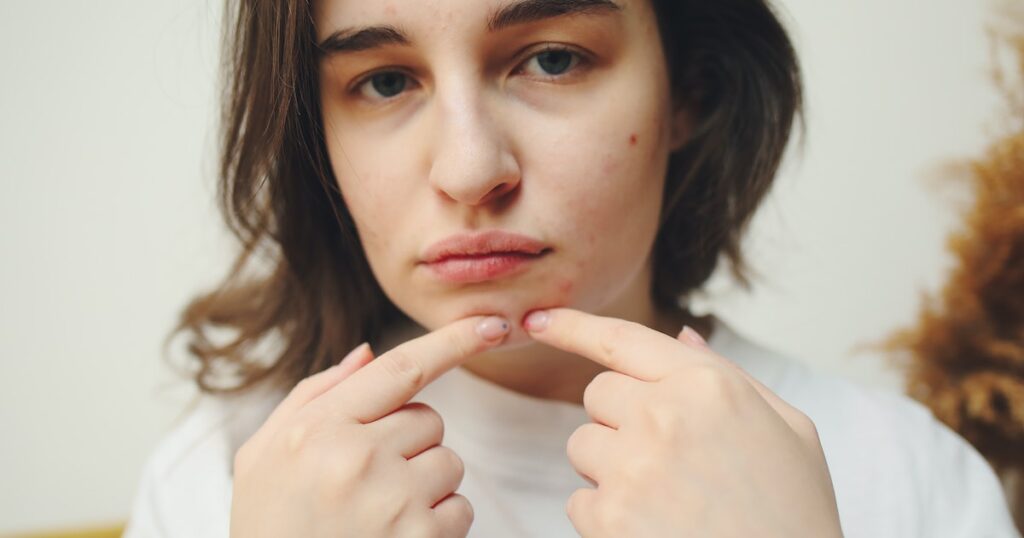
Research Studies on Melatonin and Acne
Researchers have looked into the link between melatonin and pimples in many ways. A study in the Journal of Drugs in Dermatology examined how melatonin affects the skin prone to acne. The study found that putting melatonin on the skin lowered sebum production and had anti-inflammatory effects. This made acne symptoms get better.
Another study, published in the Journal of Clinical Sleep Medicine, examined how long teens sleep and how bad their acne is. The study found that shorter sleep times and significantly changed patterns were linked to worse acne. Even though the melatonin levels were not directly measured in this study, the results show that sleep problems could cause acne.
Even though these studies give us some information about how melatonin might affect acne, we still need to do more research to fully understand the connection between the two.
Other Factors Contributing to Acne
It’s important to remember that acne is a complicated disease with many causes. Acne can be caused by hormonal imbalances, genetics, diet, stress, and how you care for your face. So, it’s important to look at these things along with melatonin to determine what causes acne.
Hormonal imbalances, especially rising androgen levels, can cause the body to make more sebum, clogging pores, and making acne bacteria grow. People can also be more likely to get acne because of their genes. Certain gene types have been linked to a higher risk.
People often point to foods with a high glycemic index and dairy products as possible acne causes. Stress can make acne worse by making your body make more stress chemicals, which can make your body make more sebum and cause inflammation. Lastly, bad skincare habits like strong or comedogenic products can cause acne.
Melatonin Supplements and Acne
Melatonin pills are often used to help people sleep, especially those with trouble sleeping or jet lag. Short-term use of melatonin supplements is usually considered safe, but the long-term effects on acne are still unknown.
Some people who took melatonin pills said they got acne, suggesting a link between the two. But it’s important to think about other things that might cause acne, like stress or changes in your makeup routine, when figuring out what’s causing breakouts. Suppose you’re worried about how melatonin supplements might affect your skin. In that case, it’s best to talk to a doctor who can advise you based on your situation.
Tips for Managing Acne while Using Melatonin
If you’re using melatonin and getting acne, there are a few things you can do to take care of your skin:
- Keep a regular sleep schedule: Maintaining a consistent sleep schedule might help your body regulate the melatonin, leading to more restful nights and potentially less acne.
- Use non-comedogenic products: for your skin type to take care of your face. Don’t use harsh cleaners or scrubs that irritate the skin and worsen acne.
- Take care of your stress levels: Stress can worsen acne, so finding healthy ways to deal with it, like learning relaxation techniques or exercising, could help your skin.
- Eat a healthy, balanced diet: There is no solid proof that certain foods cause acne, but eating a healthy, balanced diet full of fruits, veggies, whole grains, and lean proteins can help your skin stay healthy.
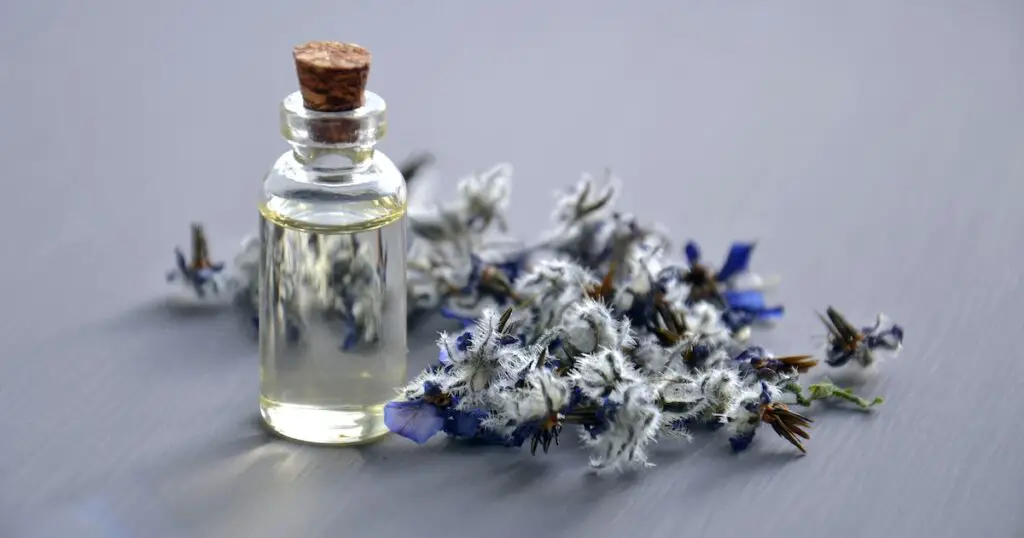
Alternative Sleep Aids without Acne Side Effects
Suppose you’re concerned about melatonin’s potential acne side effects or simply looking for alternative sleep aids. In that case, there are several options to consider:
- Valerian root: Valerian root is a herbal supplement that promotes relaxation and improves sleep quality. It may be worth trying if you’re looking for a natural sleep aid.
- Lavender essential oil: The aroma of lavender has been shown to have calming effects and promote better sleep. Diffusing lavender essential oil or using it in a bath before bedtime may help improve sleep quality.
- Magnesium: Magnesium is a mineral that plays a role in sleep regulation. Taking a magnesium supplement or incorporating magnesium-rich foods into your diet, such as leafy greens, nuts, and seeds, may help promote better sleep.
Consulting a Healthcare Professional
If you aren’t sure if melatonin is right for you or if you have acne that won’t go away, you should always talk to a medical expert. They can provide individualized counsel based on your medical history, lifestyle, and skin problems. A doctor or nurse can help you determine what’s causing your acne and point you toward the best treatments.
Conclusion
The link between melatonin and acne is complicated and has many different parts. More study is needed to fully understand it. Some evidence shows that melatonin could worsen acne, but it also has properties that could be good for the skin. Acne can also be caused by how well you sleep, hormonal imbalances, what you eat, how stressed you are, and how you take care of your face. Suppose you use melatonin and still get acne. In that case, it’s important to consider other things that might be causing it and take a comprehensive approach to treating your skin problem. Talking to a healthcare worker can help you get good advice and make smart choices about your skincare routine and sleep aids. Don’t forget that everyone has different skin, so what works for one person might not work for another. Find the best way to care for your face by being patient, persistent, and proactive.
FAQs
Melatonin itself does not directly affect the skin. However, in some cases, melatonin supplements may cause hormonal changes that can potentially contribute to acne breakouts. It is important to consult with a healthcare professional before starting any new supplement, including melatonin, to assess potential risks and benefits based on individual circumstances.
Taking melatonin every night is generally considered safe in the short term, but long-term use may have potential side effects, including dependency or changes in hormone levels. It is recommended to use melatonin under the guidance of a healthcare professional and to explore other strategies for improving sleep quality before relying on long-term melatonin supplementation.
To discontinue melatonin use, it is recommended to gradually taper the dosage over time. Start by reducing the dosage and spacing out the intervals between doses. Gradually decrease the amount and frequency until you are no longer taking melatonin. Consulting with a healthcare professional can provide personalized guidance and support during discontinuing melatonin.
No, melatonin does not cause darkness in the skin. Melatonin is a hormone that regulates sleep and wakefulness and has no direct effect on skin pigmentation or melanin production.
Melatonin is still recommended as a sleep aid for certain individuals, but its long-term use or misuse without medical supervision may lead to dependency or disrupted natural sleep patterns. Following dosage guidelines and consulting a healthcare professional for individualized advice on melatonin use is important.
Disclaimer: This article is for educational purposes only, and does not substitute any medical advice. Always consult a qualified healthcare professional for personalized advice before trying new treatments or medications.

General Physician
Senior Medical Writer
